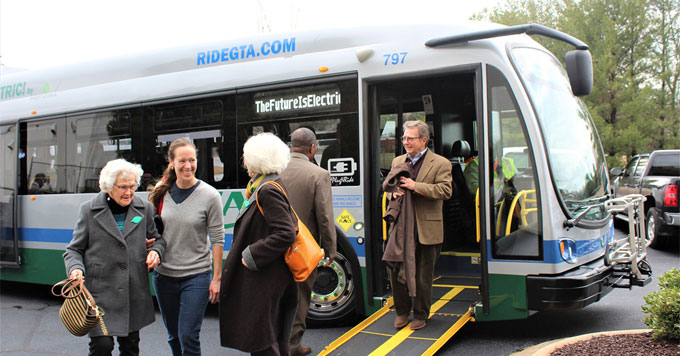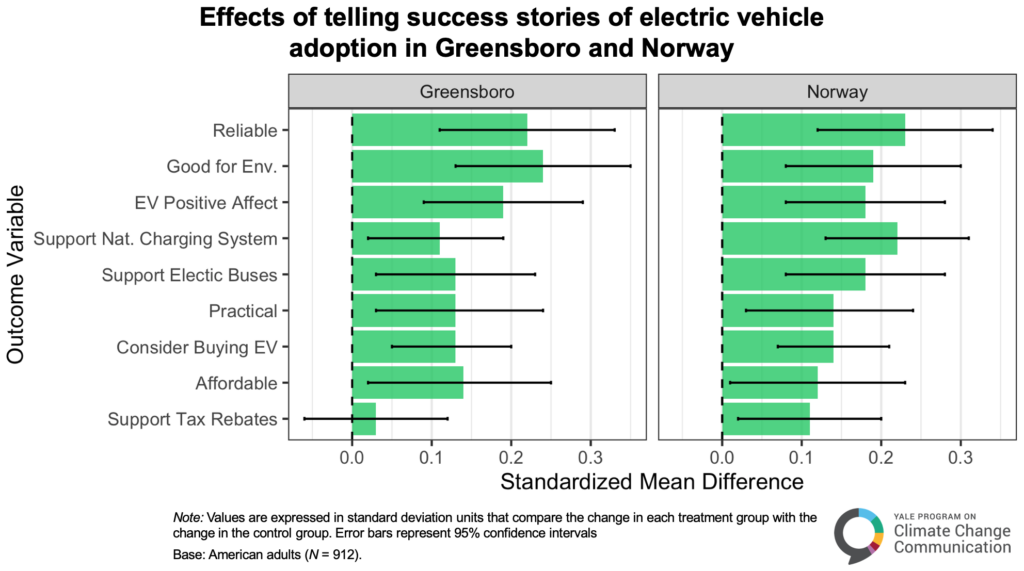Climate Note · Oct 20, 2020
Building support for electric vehicles
By Abel Gustafson, Matthew Goldberg, Seth Rosenthal and Anthony Leiserowitz
Filed under: Behaviors & Actions
A substantial part of global warming is caused by CO2 emissions from vehicles powered by gasoline or diesel fuel. Zero-emission, electric vehicles (EVs) are thus an important solution to climate change. Vehicles are a mass market product, thus consumer beliefs and attitudes are critical, because they shape consumer demand and influence individual purchasing decisions.
We conducted an experiment to test whether short audio stories about electric vehicles could influence public beliefs and attitudes about EVs, and increase support for policies designed to promote the use of EVs. The two stories were produced by Yale Climate Connections, which broadcasts short stories about climate change on more than 600 radio stations and frequencies nationwide, each day.
The first story describes how EV sales in Norway have soared, where EVs accounted for almost a third of new cars sold in 2018. And a 2016 survey found that 96% of EV owners in Norway were happy with their purchase and would not go back to a gas-powered car.
The second story describes how the city of Greensboro, North Carolina has saved money, lowered CO2 emissions, and reduced traffic noise by adding 10 electric buses to their city transit fleet. The story quotes a city official who estimates they will save over $300,000 per bus by transitioning to EVs.
In our experiment, 912 American adults were randomly assigned to listen either to one of these two stories about EVs or to a “control” story about the biomechanics of cheetahs. Before and after listening to their assigned radio story, participants answered questions about their beliefs, attitudes, and policy support regarding EVs.
We found that both EV radio stories (“Norway” and “Greensboro”) had significant positive effects. That is, compared to the control condition, participants who heard one of the radio stories about EVs became more convinced that EVs are reliable, good for the environment, practical, and affordable. They also developed a stronger positive attitude about EVs and more strongly supported developing a national network of charging stations, switching to electric buses, and providing tax rebates for EV purchases. Participants who heard these stories were also more likely to consider buying an EV in the future.
This experiment indicates that communicating real-world stories is an effective way to improve consumer beliefs and attitudes about EVs, and increase public support for policies to accelerate the transition to electric vehicles.

